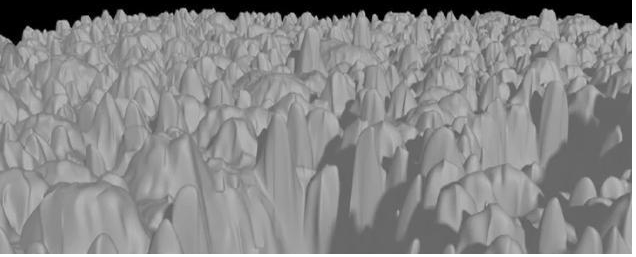A Response to Haidt Regarding Harris’ Moral Landscape Challenge

Jonathan Haidt responded recently to Sam Harris’ Moral Landscape Challenge >, and in doing so made a number of significant errors.
First off, I enjoyed the piece overall. I think his highlighting of how our biases are often controlling us more than we know is spot on, and it’s valuable to know that smart/logical people are not immune to this. Daniel Kahneman’s work has shown me this quite effectively.
So in the piece Haidt is making one primary claim: That reason isn’t, in practice, usually as clear as it seems to be, because it’s usually marred by the biases of the wielder.
Again, that’s a fair and useful point. But he then goes on to make a number of arguments (some more directly than others) that don’t necessarily follow:
Harris won’t change his mind because he’s too biased to do so
The concept of the moral landscape is flawed because individuals have biases that affect their ability to be logical
We shouldn’t trust people like Harris because they hate religion
The new atheists are more sure of their positions than right-wing blowhards
Let’s take these one at a time:
Harris won’t change his mind because he’s too biased to do so
First of all, nobody puts up $10,000 dollars if they aren’t pretty committed to the position. But Sam Harris is not a stupid person, and he knows that he’ll be criticized widely if he doesn’t change his mind—especially if he’s challenged with a great argument.
I think the obvious answer is most likely: He doubts that anyone can sway his position, but holds a small amount of hope/room that someone can, and would change his mind if he heard a good enough argument. He also knows that he’d earn massive respect if that happened, so it wouldn’t be a major loss for him.
So the analysis that he uses "certainty words" too often, and that logic is often poisoned by bias, is a bit too blunt of a tool to use on Harris here.
Individual bias makes the Moral Landscape impossible
Haidt makes a major mistake here by thinking (and saying) that because individuals are bad at judging their own objectivity it must mean that using science to gauge happiness and suffering is a fools errand.
The error should be obvious: Science isn’t based on individuals making judgements. It’s based on evidence that has been validated objectively by many.
Harris isn’t proposing that he, or any other individual, sits down and divines a solution to complex world problems using his logic Ouija board. He’s saying that science should be used to show how policy changes affect human happiness and suffering. Big difference.
We shouldn’t trust people like Harris because they hate religion
Again, presumably Harris doesn’t do his research using his biases. And furthermore, as Haidt points out later, science is transparent so that others can detect the bias if it’s there (in the methodology) and can discard the results or show conflicting results using a better study.
Throughout Harris’ Moral Landscape he repeatedly shows that the science can and will take us where it will, and that he’d be fine with that. If it’s shown that people going to church is good for them and good for society as a whole, then I think he’d accept that, as he would have to given his own model.
To say otherwise is to outright accuse him of bias-driven hypocrisy.
The new atheists are more sure of their positions than right-wing blowhards
Finally, he has this neat bit in there about how the new atheists use certainty words more often than right-wing talk radio hosts.
The answer here seems (uh oh, bias) obvious to me: Dawkins and Harris are talking about a very thin slice of reality in their reading. They’re talking about specific claims, and logical responses to those claims.
It is, for example, easy to say that there is no compelling evidence of Noah’s Arc being a real thing. That’s a strong statement, but a solid one. Right-wing radio hosts, however, ramble on about all manner of preposterous theories and ideologies. And they do so on the radio where they have to be extremely careful with their language. So they’re saying things like:
Where Dawkins might say something like:
This is apples and…dinosaurs. It’s not even remotely the same. One is responding to an outrageous claim by countering it, and the other is making outrageous claims (cautiously, so as to appear smart). But because one said "almost", and the other said "no evidence", we are supposed to take from it that the former is more cautious than the latter? No.
Seeing this as evidence that people like Harris and Dawkins are more biased or reticent to change their minds than Rush Limbaugh is openly ridiculous. Scientists change their mind when they see compelling evidence to do so. What do right-wing talk show hosts do?
Conclusion
Again, I thought the caution against bias was a great point, and he captured it well. But his arguments he made from there were in my opinion weak.
Notes
Also keep in mind that Harris recognized his own lack of objectivity and put one of *his critics* in charge of rating the challenge essays.